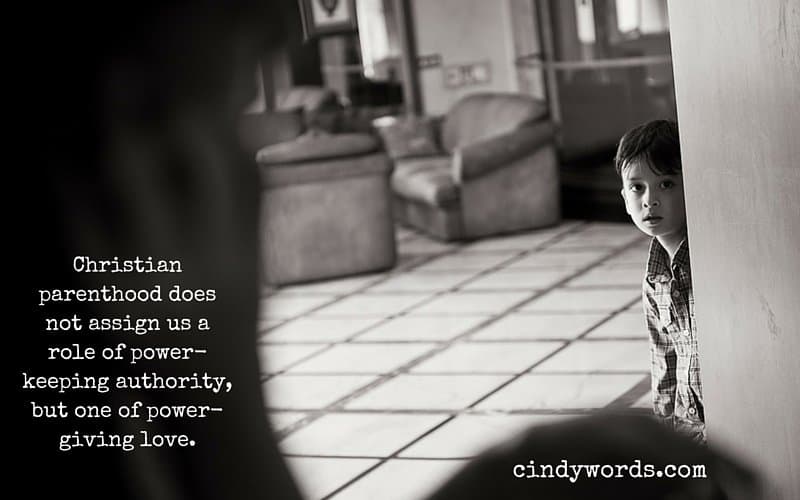
The Problem with Shepherding a Child’s Heart – Part 2
January 5, 2016
This post is part 2 critiquing Ted Tripp’s popular Christian parenting book, Shepherding a Child’s Heart. Last week I said this,
“Undergirding Tripp’s parenting book is a theological assumption of the nature of the child and the role of the parent.”
According to Tripp, the nature of the child is sinful, idolatrous, and bound by a heart of folly. I call into question this theology by unpacking the nuances of sinful behavior in children, the complexities of a child and his engagement with systemic influences, and their capability for great love. Today, I am critiquing Tripp’s view of the role of the Christian parent, and suggest a better way to view our faithfulness in the unique task of parenting.
***
Tripp’s message to Christian parents rings loud and clear—a clear directive succinctly called forth by his chapter title, “You’re in Charge.” (pp. 28) Lamenting culture’s erosion of authority, Tripp challenges Christian parents to get back in the helm and regain control over the next generation of children. He says, “As a parent, you have authority because God calls you to be an authority in your child’s life. You have the authority to act on behalf of God.” (pp. 29) For scriptural support, he turns to passages in Genesis 18 and Deuteronomy 6 which references God’s admonitions for Israel and her descendants to keep the law. The biblical narrative is telling a specific story about God’s work of salvation in the world through the nation of Israel, it is NOT a parenting manual prescribing the role of parenthood in 21st century model of the nuclear family. To take Scripture out of context in this way lacks biblical integrity and perpetrates a twisted view of parenting.
The disastrous result of such exegesis is the conclusion Tripp comes to, that parents “function as God’s agents…standing before [the child] as God’s agent to show him his sin.” (pp. 34) He then goes on in the next several chapters evaluating “biblical” goals and methods, including a particularly problematic section on spanking. As parents, we already hold tremendous power over our children physically, legally, and financially. The children are vulnerable to our imperfections: our anger and insecurities, our own childhood baggage, our finite decision making capabilities. To add more justification to the power of parenting is to further upset the imbalance of power between adult/child. To provide spiritual ammunition as an agent of God to spank children, is to pave the way to abuse.
(To be clear, I am not accusing parents who spank to be abusive. Although I am personally against spanking, I recognize not all spanking is necessarily abusive. But this kind of spiritual justification for corporal punishment allow abusive parents to cross the line of abuse without accountability. It also shuts down conversation on creative alternatives to bring correction to misbehavior.)
Tripp sets up the parenting task by equating faithfulness to wielding control. I feel this completely misses the mark of the gospel story, and is in fact, the antithesis of the radical message Jesus brings. Joyce Mercer, in her book, Welcoming Children, reminds us that when Jesus welcomes the children in the gospels, it wasn’t just a quaint, feel-good scene, but was in fact, a revolutionary act in Jesus’ time, where children occupy the lowest status as literal possessions of the father in a patriarchal society. Tripp wants to ensure the status quo and hierarchical order is maintained in the family, with the parents firmly established as authority figures/agents of God over the children, forgetting that Jesus came to overturn the reigning hierarchies of his day.

Christian parenthood does not assign us a role of power-keeping authority, but one of power-giving love. Becoming parents does not bestow upon us a higher status to rule over our children, instead, it is a gift that offers us a beautiful opportunity to practice our faith in a new way. Mercer says this of new parents, that “children offer their parents a new identity as people called to see and love children as if through the eyes of God.” We are not to BE God to the children, but to SEE the image of God reflected in our children and all the children of the world. We are to view them the way God sees them: as worthy, blessed, welcomed, included, delighted in, and loved.
When we use the power-subverting lens of Jesus to view our vocation of parenthood, it equalizes our power as imperfect parents exercising control over children, and opens up ways for the children to bless and minister to us as much as we seek to care for them. Let me briefly mention two ways I believe children are essential to our discipleship.
First, children reveal to us the vulnerability of our own humanity. Mercer says we share in the childhood of God. The most poignant way children do this is how vividly we see our human suffering magnified. I am reminded of the toddler boy who washed up on the beach, how his suffering woke the world. Although the refugee crisis had been severe and ongoing, our complicity and helplessness in the face of global injustice allow us to ignore it, burying our heads in the sand until a drowned child jolts us back into reality. It’s as if we don’t see suffering unless we see children suffering. Children remind us how vulnerable we all are, trapped in the frailties and finitude of the human condition.
Second, children have much to teach us about faithfulness. There are many examples of children and youth in Scripture who model Christian discipleship, such as the boy who gave up his food to feed the crowd. God uses children as agents of deliverance. In fact, Jesus himself visited the temple on his own autonomy, outside of his parent’s directive, when he was only a twelve year old boy. Children are capable of having a vibrant spirituality and leading us into greater faithfulness.
Our sacred duty is not to stand in authority over our children, but to view them from a godly perspective—not as sinners wicked to the core, but as human beings in all of their complexity, created with potential for both great goodness and terrible evil. Our responsibility to influence their faith formation must also make space for their input into our own discipleship. Faithfulness to the gospel is not complete when we exercise total control over the children, but when we re-enact the upside down Kingdom that Jesus inaugurated—a place where the silenced are given voice, the least become the greatest, and the little children are welcomed.

